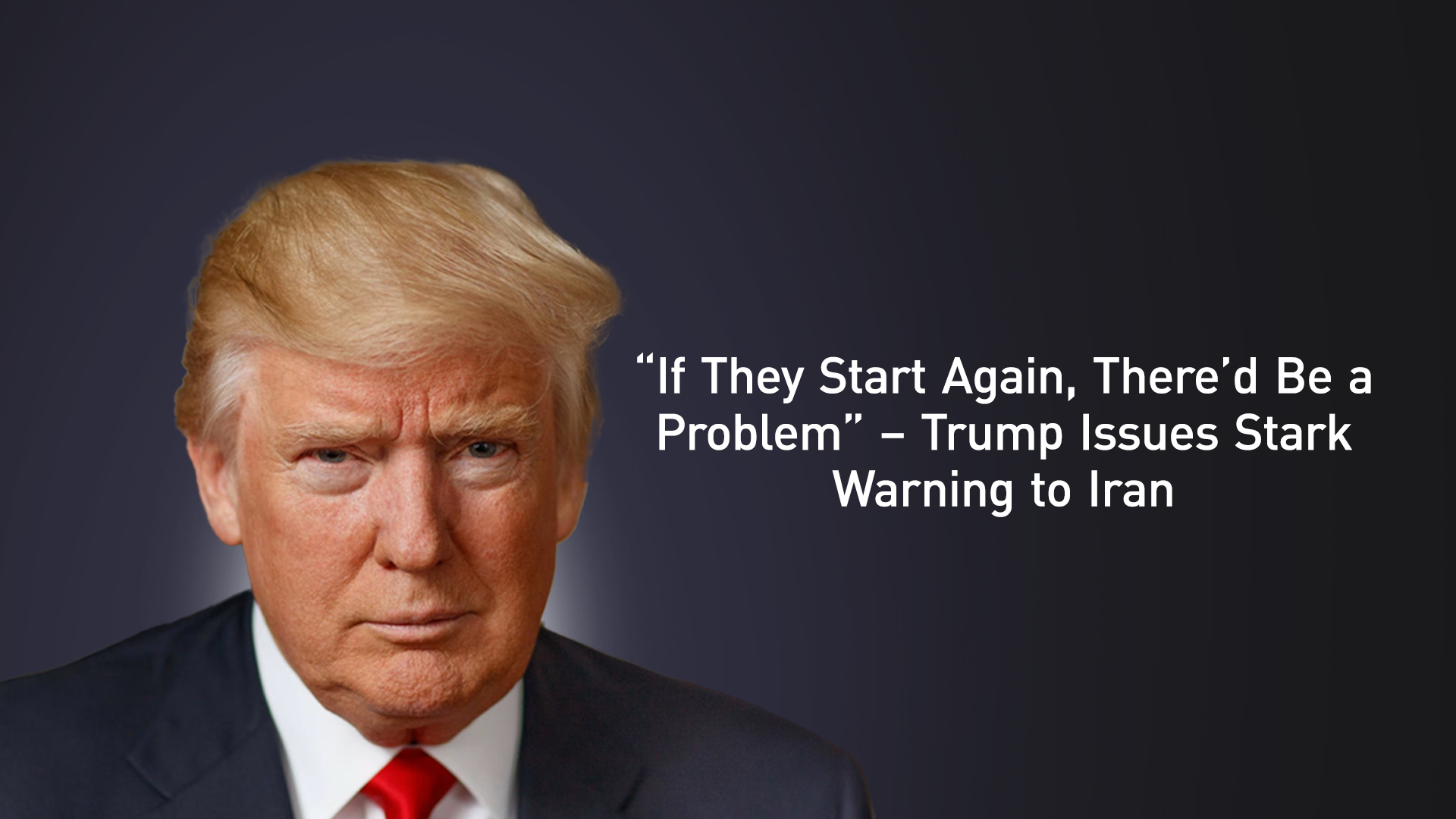Trump: Iran Strike ‘Totally Demolished’ Nuclear Facility, Warns Against Restart
Trump warned Iran its nuclear site was “totally demolished” in a recent strike and any restart would trigger a strong U.S. response. He hailed the attack as a major success, ruled out compensation, and emphasized support from Saudi Arabia, with Iran high on his agenda with Netanyahu.

By Kamaran Aziz
ERBIL (Kurdistan24) — U.S. President Donald Trump has issued a stark warning to Iran, declaring that the nuclear facility targeted in a recent strike was “totally demolished” and any effort by Tehran to resume nuclear operations would provoke a forceful American response.
“If they were to do it again, they might as well start in a different location because that location is totally demolished,” Trump told reporters aboard Air Force One on July 4 during his flight to New Jersey. “They could start, but I would think they’d have to start in a different location. But if they did start, there’d be a problem. We wouldn’t allow that to happen.”
The president made the remarks in the context of an upcoming meeting with Israeli Prime Minister Benjamin Netanyahu, with Iran expected to top the agenda. Trump hailed the recent military action as a “great success,” asserting, “It was blown to pieces… I would say it’s set back, permanently.”
Trump, referring to the U.S. airstrikes on Iran's Fordow, Natanz, and Esfahan Nuclear facilities, framed it as a pivotal moment in his administration’s efforts to counter Iran’s nuclear ambitions, which he characterized as inherited challenges. “You could say Gaza. You could say I inherited Iran. We did something about it,” he said, also referring to the release of hostages from Gaza as part of broader regional achievements.
Asked whether ongoing talks with Iran were premature given Tehran’s failure to agree to international inspections or abandon its nuclear program, Trump remained noncommittal but skeptical. “Let’s see what it is. They wanna meet with me. So if they haven’t agreed, then we’re not gonna have a very successful meeting,” he remarked.
He categorically dismissed the notion of compensating Iran for the damage inflicted. “I think it’s pretty ridiculous. Yeah. I would say maybe very ridiculous,” Trump said.
The president also spoke about a recent meeting with Saudi Arabia’s Defense Minister, who conveyed messages from King Salman and Crown Prince Mohammed bin Salman. “They congratulated us on the incredible attack on Iran. It was an attack on something that you can’t have — the nuclear facility,” Trump said. “It’s been proven now that it’s been totally obliterated.”
Trump said the meeting included discussions on missile defense, aircraft sales, and trade, emphasizing that Saudi Arabia “wants to buy a lot of airplanes.” The comments signal continuing defense and economic cooperation between Washington and Riyadh amid rising regional tensions.
Turning to the Israeli-Palestinian conflict, Trump suggested a breakthrough could be near. “There could be a Gaza deal next week. I’m very optimistic,” he said, while cautioning, “It changes from day to day. It’s been changing for years.” He noted that his administration had achieved multiple hostage releases from Gaza, though he acknowledged the conflict was among the difficult situations his team inherited.
Responding to criticism that he has been tougher on Iran than Russia, Trump defended his record. “No. I think I’m tougher on Russia than I am on Iran, actually,” he said, pointing to his administration’s closure of the Nord Stream 2 pipeline project as a major economic blow to Moscow.
As for his upcoming international engagements, Trump indicated that travel plans remain fluid. “We’re putting out fires all over the place,” he said, but confirmed invitations from European allies and Turkey. He also cited a “tremendous success” at NATO, saying member states have agreed to dramatically increase defense spending. “They’ve agreed to put up more than a trillion dollars,” Trump said, describing it as a critical deterrent to growing global threats.
Trump’s remarks underscore a continued hardline stance on Iran’s nuclear activities, a strong defense partnership with Israel and Saudi Arabia, and active engagement in resolving the Gaza conflict—all central to U.S. foreign policy in the Middle East as the region remains mired in volatility.